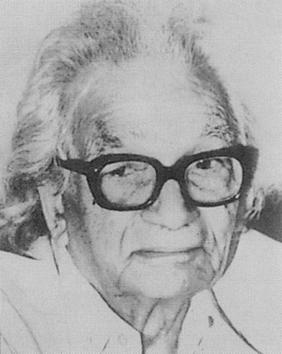
Urdu is an Indo-Aryan language spoken chiefly in South Asia. It is the national language and lingua franca of Pakistan, where it is also an official language alongside English. In India, Urdu is an Eighth Schedule language whose status and cultural heritage is recognised by the Constitution of India; it also has an official status in several Indian states. In Nepal, Urdu is a registered regional dialect and in South Africa it is a protected language in the constitution. It is also spoken as a minority language in Afghanistan and Bangladesh, with no official status.

Hindustani is an Indo-Aryan language spoken in Deccan, Northern India and Pakistan, and used as a lingua franca in both countries. Hindustani is a pluricentric language with two standard registers, known as Hindi and Urdu. Thus, it is also called Hindi–Urdu. Colloquial registers of the language fall on a spectrum between these standards. In modern times, a third variety of Hindustani with significant English influences has also appeared which is sometimes called Hinglish.

Kauravi, originally as Khaṛībolī, is a set of Western Hindi dialects of Shauraseni Prakrit mainly spoken in Northwestern Uttar Pradesh.

Mir Babar Ali Anees, also known as Mir Anees was an Indian Urdu poet. He used his pen-name (takhallus) of Anees in poetry. Anees used Persian, Urdu, Arabic, and Sanskrit words in his poetry. Anis wrote prolonged Marsias, which was a custom of his times, but nowadays only selected sections are narrated even in religious ceremonies. He died in 1291 Hijra, corresponding with 1874 CE.
Urdu literature refers to the literature in the Urdu standard of the Hindostani language. While it tends to be dominated by poetry, especially the verse forms of the ghazal غزل and nazm نظم, it has expanded into other styles of writing, including that of the short story, or afsana افسانہ. Urdu literature is mostly popular in Pakistan, where Urdu is the national language and India, where it is a recognized language.
Ahmed Ali was a Pakistani novelist, poet, critic, translator, diplomat and scholar. A pioneer of the modern Urdu short story, his works include the short story collections: Angarey (Embers), 1932; Hamari Gali, 1940; Qaid Khana, 1942; and Maut Se Pehle, 1945. His other writings include Twilight in Delhi (1940), his first novel in the English language.

Mir Muhammad Taqi, known as Mir Taqi Mir, was an Urdu poet of the 18th century Mughal India and one of the pioneers who gave shape to the Urdu language itself. His father's name was Meer Muttaqi. After his father's death, his step-Brothers took control over his property. His step-uncle took care of him after he was orphaned and after the death of his step-uncle(paternal) his maternal step-uncle took care of him. The part of his poetry is the grief he expresses. He has expressed a lot of grief over the downfall of his city, Delhi. He was one of the principal poets of the Delhi School of the Urdu ghazal and is often remembered as one of the best poets of the Urdu language. His pen name (takhallus) was Mir. He spent the latter part of his life in the court of Asaf-ud-Daulah in Lucknow.

Barabanki is a city and a municipal board in the Indian state of Uttar Pradesh. It is the administrative headquarters of the Barabanki district and a part of Ayodhya division. The city is about 30 km east of Lucknow, the state capital. It has a population of 146,831 with a density of 331.00 per square kilometre.
Rekhta, also sometimes referred as Old Urdu, was the Hindustani language as its dialectal basis shifted to the Delhi dialect. This style evolved in both the Perso-Arabic and Nagari scripts, and is considered an early literary form of Standard Urdu and Modern Standard Hindi. According to the Pakistani linguist and historian Tariq Rehman, Rekhta was a highly Persianized register of Hindustani, exclusively used by poets. It was not only the vocabulary that was Persianized, but also the poetic metaphors, inspired by Indian landscapes and seasons, were abandoned in favor of the Persian ones i.e bahaar (spring) replacing barsaat.

Hakim Syed Zillur Rahman is an Indian scholar of Unani medicine. He founded Ibn Sina Academy of Medieval Medicine and Sciences in 2000. He had earlier served as Professor and chairman, Department of Ilmul Advia at the Ajmal Khan Tibbiya College, Aligarh Muslim University, Aligarh, for over 40 years before retiring as Dean Faculty of Unani Medicine. Presently, he is serving AMU as "Honorary Treasurer". In 2006, the Government of India awarded him the Padma Shri for his contribution to Unani Medicine.

Salimuzzaman Siddiqui, was a Pakistani Muhajir organic chemist specialising in natural products, and a professor of chemistry at the University of Karachi.

Gopi Chand Narang was an Indian theorist, literary critic, and scholar who wrote in Urdu and English. His Urdu literary criticism incorporated a range of modern theoretical frameworks including stylistics, structuralism, post-structuralism, and Eastern poetics.

Anoop Chandola, author of 20 books, 4 coauthored is an American linguist-anthropologist, originally from Pauri, where he was raised in a priestly Brahmin family. Though his father and uncles broke their ancestral polygamous tradition he suffered from the aftereffects of polygamy.
Tariq Rahman is a Pakistani academic scholar, newspaper columnist, researcher, and a writer.
A marsiya is an elegiac poem written to commemorate the martyrdom and valour of Hussain ibn Ali and his comrades of the Karbala. Marsiyas are essentially religious.
Insha Allah Khan, known as Insha, was an Urdu poet in the courts of Lucknow and Delhi in the late eighteenth and early nineteenth century. A multi-talented polyglot, he was the author of the first grammar of the Urdu language, Darya-e-Latafat.
The Abaqati family is a sub-branch of the Jarwal-Kintoor branch of Nishapuri Kazmi-Musavi Sayeds who trace their lineage to the Islamic prophet Muhammad through the eldest son of the great-grandson of Musa al-Kadhim, he was given a jagir in Jarwal-Kintoor by Sultan Muhammad Tughluq, his other two brothers were given jagirs in Budgam, Kashmir and Sylhet, Bengal.
Siraj-ud-Din Ali Khan (1687-1756), also known by his pen-name Arzu, was a Delhi-based poet, linguist and lexicographer of the Mughal Empire. He used to write mainly in Persian, but he also wrote 127 couplets in Urdu. He was the maternal-uncle of Mir Taqi Mir. He taught Mir Taqi Mir, Mirza Muhammad Rafi Sauda, Mirza Mazhar Jan-e-Janaan and Najm-ud-Din Shah Mubarak Abroo.
Muhajir culture is the culture of the various Muslims of different ethnicities who migrated mainly from North India in 1947 generally to Karachi, the federal capital of Pakistan and before 1947 Karachi is the capital of Sindh. They consist of various ethnicities and linguistic groups. The Muhajirs are mainly concentrated in Karachi and Hyderabad.

The Urdu ghazal is a literary form of the ghazal-poetry unique to the Indian subcontinent, written in the Urdu standard of the Hindostani language. It is commonly asserted that the ghazal spread to South Asia from the influence of Sufi mystics in the Delhi Sultanate.










